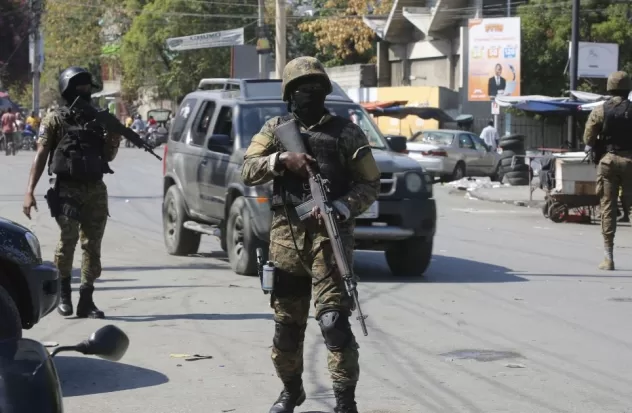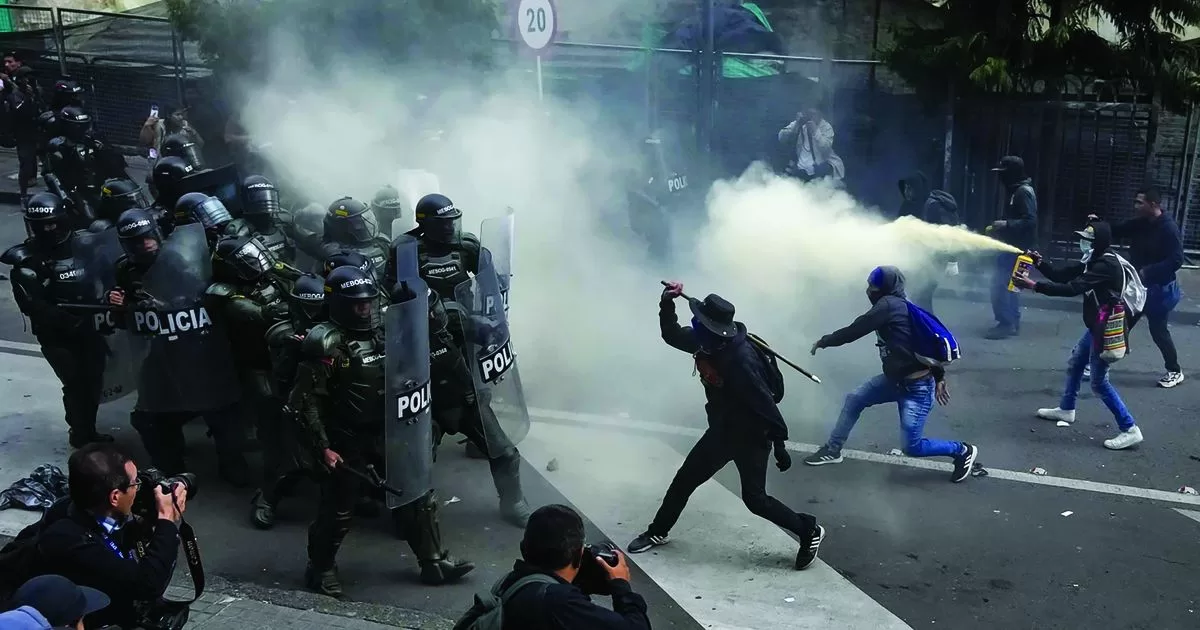The prime minister of Haiti was last seen in Puerto Rico, where he negotiated his return to a country marked by violence and controlled by heavily armed gang members. With its fate up in the air and the situation in Haiti deteriorating by the day, the world wonders if the country will fall completely into anarchy or some semblance of order will be restored.
What is happening in Haiti?
It is easy to attribute the latest outbreak of violence in the West’s first free black republic to entrenched poverty, the legacy of colonialism, widespread deforestation and corruption.
However, a number of experts said that the most important immediate cause is something more recent: Haitian leaders have increasingly depended on the gangs street
Haiti has not had a strong, well-funded standing army or national police force for decades.
The interventions of United Nations y USA They have come and gone. Without a tradition of clean political institutions, Haitian leaders have used armed civilians as tools to exercise power.
Now the state has been weakened to the extreme and gangs are taking its place.
Gang leaders, in surreal scenes, hold press conferences. And many see them as future participants in negotiations about the country’s future.
How did Haiti get here?
In 1990, an embargo was imposed on the country after the army overthrow President J.ean-Bertrand Aristide. The embargo and international isolation devastated the country’s small middle class, said Michael Deibert, author of two books about the country.
After a U.S.-backed United Nations contingent ousted coup leaders in 1994, a World Bank-driven settlement led to the importation of American rice and destroyed rural agricultural society, Deibert said.
Jobless kids flocked to Prince Port and they joined the gangs. Politicians began to use them as a cheap armed wing. Aristide, a priest turned politician, became famous for using gang members.
In December 2001, police officer Guy Philippe attacked the National Palace in a coup attempt and Aristide called on the gang members to leave the neighborhoods, Deibert explained.
“It was not the police that defended the National Palace of the government,” recalled Deibert, who was there. “There were thousands of armed civilians.”
“There are these different politicians who have collaborated with these gangs for years, and … it blew up in their faces,” he continued.
How did weak international intervention harm Haiti?
Many of the gangs retreated before MINUSTAH, a United Nations force established in 2004.
René Prévalthe only president elected democratic who completed two terms in a country known for its political turmoil, treated gangs with a heavy hand and gave them the choice between “disarm or die,” said Robert Fatton, professedr of foreign affairs and government in the University of Virginia.
After his presidency, subsequent leaders were soft on the gangs at best and had ties to them at worst.
All relevant figures in Haitian society had their gangs, Fatton noted, and although the current situation is not unique, it has deteriorated at a faster pace.
“In the last three years, the gangs began to gain autonomy. And now they are a power in themselves,” she said, comparing it to a “mini-mafia state.”
“The autonomy of the gangs has reached a critical point. That is why they are now able to impose some conditions on their own government”Fatton said.
“Those who created the gangs created a monster. And now the monster may not be in complete control, but it has the ability to block any kind of solution,” he said.
How does gang money hurt Haiti?
The gangs, like many politicians and businessmen, make money from an illicit combination of “taxes” collected through extortion, kidnappings and drug and weapons smuggling, Fatton said.
“There are all kinds of criminal networks in the area,” he indicated.
After Préval, gangs, politicians and businessmen squeezed every dollar they could, said François Pierre-Louis, a political science professor at the Queens College in The City University of New York.
“It was an open day for gangs, drugs, the country basically (…) became a narco-state,” he stated. “The gangs gained power and not only did they have power, they had protection from the state, politicians who protected them.”
Por: MICHAEL WEISSENSTEIN Associated Press
Source: Associated Press



